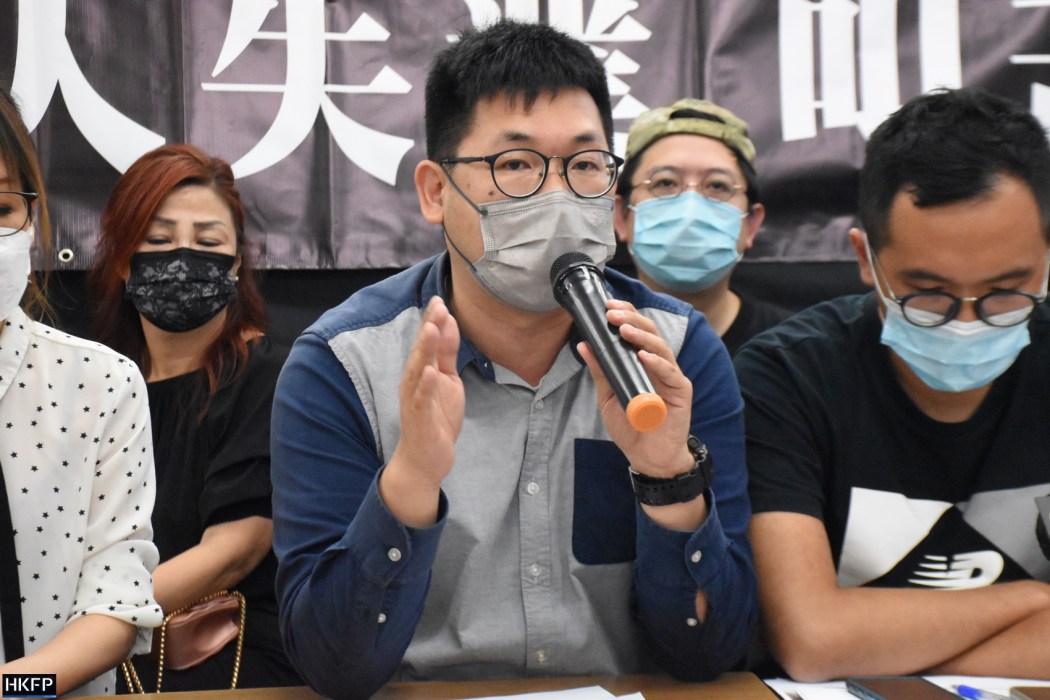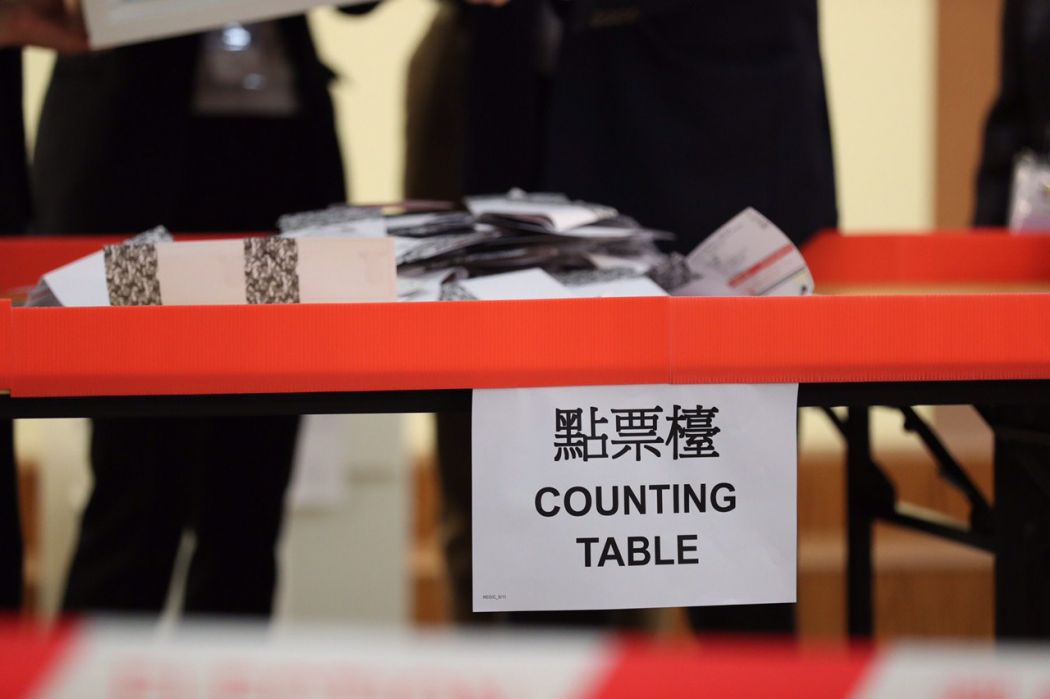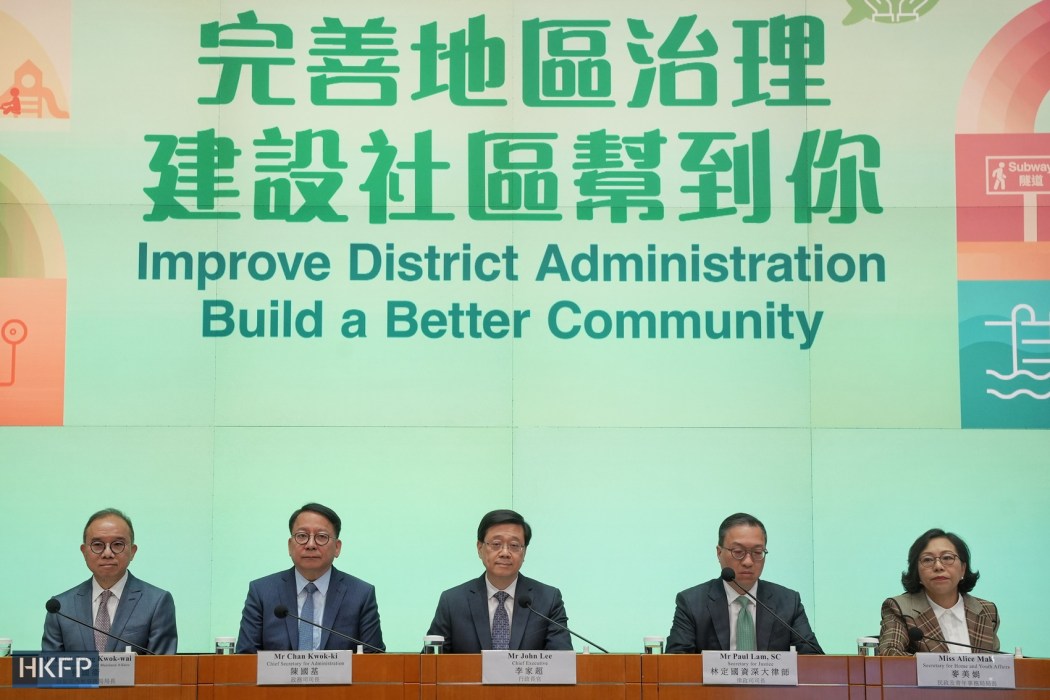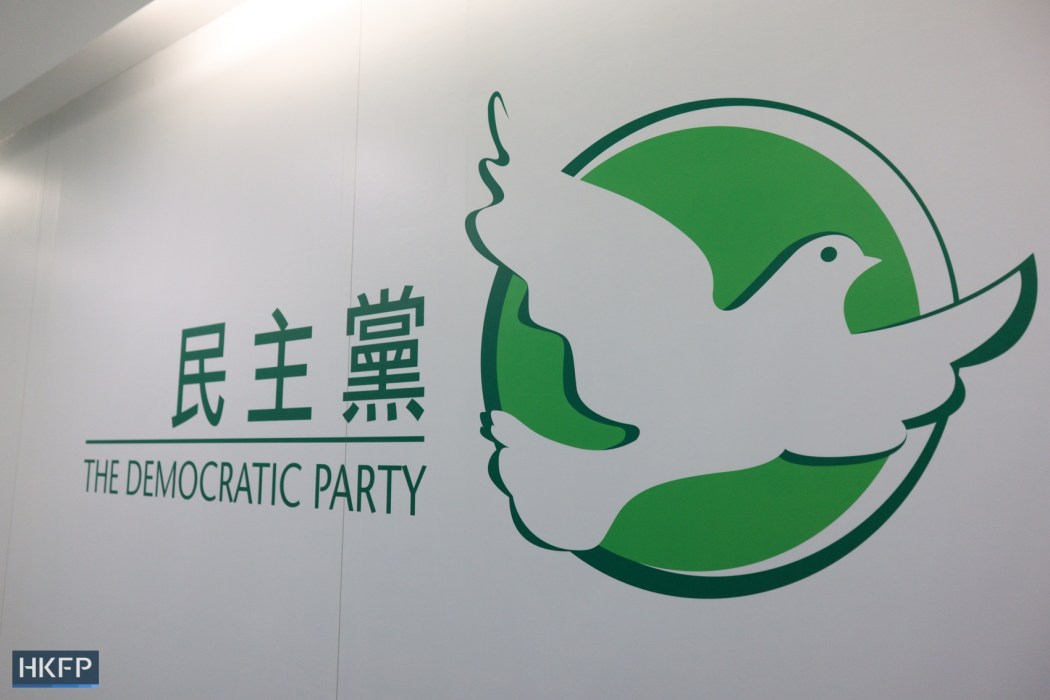A decision on whether to take part in Hong Kong’s overhauled District Council election is “tough and painful ” for the Democratic Party, its vice-chairman has said as Beijing backed the city’s move to drastically reduce the number of directly elected seats to local advisory bodies.

The upcoming District Council election will see fewer democratically elected seats and the return of government-appointed members to the advisory bodies. But opting out of the polls could create long-term financial pressure on the Democratic Party, its vice-chief and ex-Kwun Tong district councillor Mok Kin-shing said in an opinion piece published in Ming Pao on Thursday.
“The Democratic Party, which has gone through 29 summers and winters since its establishment, has always been community-oriented. However, under the new circumstances, whether the Democratic Party ultimately decides to run for election or not is a tough and painful decision,” Mok said.
His remarks came weeks after Hong Kong’s “patriots-only” legislature – which was itself transformed to sharply cut the number of directly elected seats – unanimously approved the government’s proposal to overhaul District Council elections. The plans to change the poll were unveiled in May to ensure only “patriots” are elected, following a pro-democracy landslide at the last polls in 2019.

The number of seats chosen democratically by the public will be slashed to around 20 per cent, with the rest selected by the city’s leader, government-appointed committees and officials.
Constituency boundaries will be redrawn and each local council will be chaired by a government official, similar to colonial-era arrangements. All candidates will undergo national security vetting to ensure their patriotism.
The Democratic Party vice-chair outlined four possible scenarios if the party decided to join the elections, expected to be held in December. Candidates may not be able to secure enough nominations from three government-appointed committees or may be disqualified by returning officers.
The “worst case scenario,” according to Mok, would be for Democratic Party election hopefuls to enter the elections and lose. Those who were defeated may end up being unemployed and in debt, he said, pointing to the difficulty in sourcing campaign funds and the possibility that some candidates would need to quit their jobs before standing.
Mok said the fourth scenario would involve elected Democratic Party councillors being subject to government monitoring and a probe if their performance was deemed unsatisfactory. They could face salary cuts, suspension or even disqualification, the party vice-chief said.
“In fact, the ‘boss’ of elected councillors is the voters, because they are elected through the one-person, one-vote system. If voters think that their performance is unsatisfactory, they can vote them out in the next election. Why should the government decide whether elected officials are competent?” Mok asked.
Hong Kong’s pan-democratic camp took control of 17 out of 18 councils in 2019, in the wake of months of mass protests. But more than half of the 452 district councillors elected that year resigned in 2021 following local media reports that they may be asked to repay all wages and subsidies if disqualified for being deemed to breach a new oath of allegiance to the HKSAR.
Mok said the party would not seek nominations from the three committees through an “unequal way.” The people making the nominations must not impose any preconditions on the candidates, while election hopefuls would not promise to do something for the nominators in return, he said.
“The Democratic Party has always been reluctant to withdraw from the District Councils. If we decide to run for election, we will definitely not seek nominations through humiliating means and exchange of benefits,” he said.

The party’s chairman Lo Kin-hei was assessing whether members intended to stand, with some incumbent and former district councillors expressing an interest, Mok said.
The party was reviewing whether members who showed an interest could uphold its values before deciding whether to support them. But Mok admitted it was hard to evaluate whether Democratic Party members would be qualified to run at present.
The Democratic Party is one of the few opposition forces left in the city after the Civic Party voted to dissolve in May and dozens of civil society groups disbanded after the Beijing-imposed national security law came into force on June 30, 2020.
If the Democratic Party decided not to take part, it would turn the party into a “pressure group” as it would have no district councillors in the coming four years, Mok said. Because the current political situation made it difficult to conduct fundraising, the party would end up facing long-term financial pressure.

“Apart from tight resources, even if we wish to continue serving citizens outside the system, there is no suitable identity for us to negotiate with the authorities or public institutions. It would be rather difficult to handle requests for help, whether it is personal or community issues,” he said.
‘Fully affirmed’
Secretary for Constitutional and Mainland Affairs Erick Tsang on Wednesday ended a two-day visit to Beijing, where he met Xiao Baolong, the top Beijing official overseeing Hong Kong and Macau affairs.
Xia “fully affirmed” the District Council overhaul and the “improvement” of district governance, the minister’s press office said in a statement on Thursday. In particular, Xia hailed the passing of the District Councils (Amendment) Ordinance earlier this month, saying it showed a “positive interaction” between the city’s executive and legislative branches.

Xia also called on the Hong Kong government to continue to explain what he called the advantages of the overhaul to the public, as well as to carry out preparatory work.
“Director Xia also reminded the HKSAR government to accomplish the work on improving district governance, in order to let the public experience the advantages of the new system and to enhance people’s sense of achievement and satisfaction,” Tsang’s press office wrote.
Voter turnout affected by ‘many factors’
On Wednesday, Secretary for Home Affairs Alice Mak, who also visited Beijing, said the upcoming election should not be judged solely on voter turnout. Other factors such as the weather could also affect voter’s participation, she said.
“The voter turnout rate is affected by many factors, for example there is a rain, or the current weather which can reach up to 40°C, or the previous typhoon… Voter turnout rate is not the only factor we consider,” Mak told reporters.
“The only and most important thing is for the election to be held smoothly and orderly, in order to elect a group of appropriate district councillors to join the District Councils and better serve the citizens.”
Correction 21/8: Mok Kin-shing is a former, not current, district councillor, as previously suggested. We regret the error.
Support HKFP | Policies & Ethics | Error/typo? | Contact Us | Newsletter | Transparency & Annual Report | Apps
Help safeguard press freedom & keep HKFP free for all readers by supporting our team

LATEST FROM HKFP
HKFP has an impartial stance, transparent funding, and balanced coverage guided by an Ethics Code and Corrections Policy.
Support press freedom & help us surpass 1,000 monthly Patrons: 100% independent, governed by an ethics code & not-for-profit.










